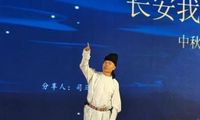On March 21, 2025, Sima Nan, a prominent internet personality in China, was reported for tax evasion, culminating in penalties exceeding 9 million yuan. The announcement came from the Beijing Taxation Bureau following a thorough investigation that spanned several years.
Investigators revealed that from 2019 to 2023, Sima Nan, through deceptive practices such as concealing income and submitting false declarations, evaded taxes amounting to approximately 4.6243 million yuan. Additionally, his controlled company, the Beijing Film Planning Center—established in 1999—evaded over 753,200 yuan in corporate income tax by falsely overstating costs.
As a result of these findings, the authorities imposed a total financial liability of 9.2694 million yuan, covering back taxes, late fees, and fines. Remarkably, Sima Nan and his enterprises have since paid the full amount into the national treasury.
Sima Nan, notorious for his strong anti-Western rhetoric, commands a significant following online, with nearly 38 million followers on Douyin and over 3.22 million on Weibo. However, this case highlights a stark contrast between his public persona and personal actions. Known for promoting patriotic sentiments, he recently faced backlash after it was disclosed that he purchased property in the United States, which detractors labeled hypocritical given his economic stance against the West.
The Beijing Taxation Bureau's initial investigation began when they identified potential tax irregularities using advanced data analysis techniques. Following the investigation, not only was Sima Nan scrutinized, but his entire business operation came under the lens, revealing a complex web of associations with multiple companies, including Sanya Yazhou Sima Nan Cultural Studio, which was established in April 2023 and currently applies for multiple trademarks associated with his name.
This case isn't just a matter of finances; it indicates a broader narrative about personal integrity and accountability. The financial penalties serve as a cautionary tale about the consequences of tax evasion, especially given Sima Nan's advocacy for strict adherence to moral and ethical standards in public life. Observers note that individuals holding public opinion roles should be held to higher standards, both personally and professionally.
The repercussions extend beyond Sima Nan's finances. His public appearances and business ventures could suffer significant damage, as the backlash from fans and followers escalates. Just last year, Sima Nan faced sharp criticism when he was invited as a spokesperson for a promotional event by Xifeng Wine, which ignited a wave of negative sentiments on social media. His connection with Xifeng Wine drew particular ire as it coincided with his vocal denouncements of Western culture and commerce.
In a response to ongoing criticism, Sima Nan previously stated on his Weibo account, "I did not take money from Xifeng Wine; I only spoke at an event they sponsored." Nonetheless, renouncing any financial gain failed to quell public discontent, showing the delicate balance he must navigate between his proclaimed values and his business dealings.
Despite the scrutiny that unfolds, some remain steadfast supporters of Sima Nan, refusing to accept the findings as truth. Among the fervent online supporters, there's a tendency to defend him, asserting that the investigation serves a political agenda rather than exposing genuine wrongdoing.
This incident could have long-lasting effects on Sima Nan's reputation and influence. As more details emerge, observers remain curious about how public opinions may shift in response to these revelations. With the combination of financial penalties and increased public scrutiny, Sima Nan's future as a public figure hangs in a precarious balance.
Furthermore, this saga illustrates the broader implications of tax compliance for influential individuals in China. The public and governmental expectations regarding accountability are shifting, urging the rise of greater transparency in social and political discourse.
Sima Nan's case serves not only as a legal matter but also as a cultural benchmark, pressing questions on personal integrity and authenticity among those wielding influence on social media platforms. As this story develops, it offers a unique lens through which to examine the intersection of online personas and real-world accountability.








